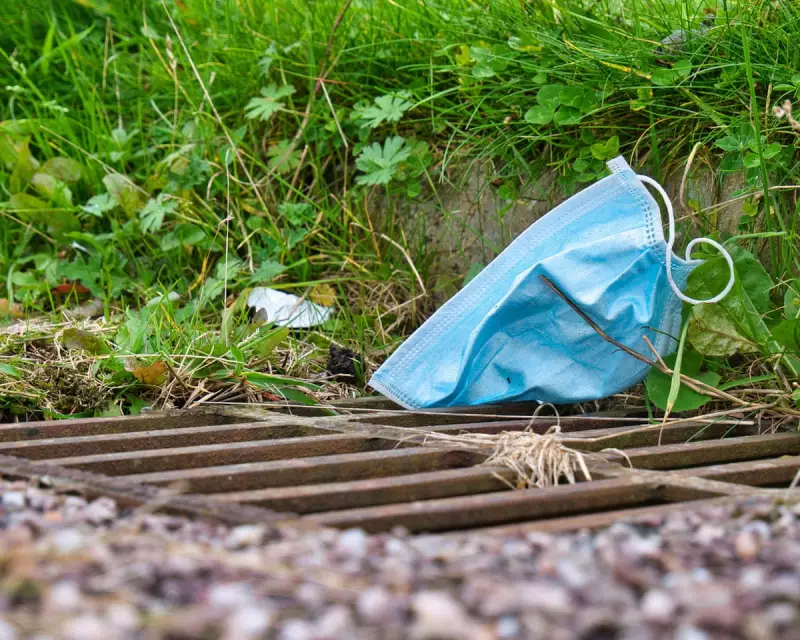
Beneath the visible litter of discarded face masks lies a far more insidious threat to Britain's environment. New scientific research has uncovered that the billions of disposable masks used during the COVID-19 pandemic are acting as chemical timebombs, leaching hazardous substances into soil and waterways across the United Kingdom.
The Unseen Legacy of Pandemic Protection
What was once hailed as essential protection against viral transmission has morphed into a persistent environmental hazard. These masks, designed for single-use, are breaking down into microplastics while simultaneously releasing a cocktail of chemicals including heavy metals, per- and polyfluoroalkyl substances (PFAS), and plasticisers.
Alarming Research Findings
The comprehensive study reveals that as these masks degrade in Britain's variable climate, they release:
- Dangerous levels of microplastic fibres that persist in ecosystems
- PFAS compounds – known as 'forever chemicals' for their environmental persistence
- Heavy metals including lead, cadmium, and antimony
- Plasticisers that can disrupt hormonal systems in wildlife
A Nationwide Environmental Challenge
From urban centres to rural landscapes, no part of the UK remains untouched. The masks accumulate in streets, parks, and waterways, gradually breaking down and releasing their toxic payload. The problem is particularly acute near healthcare facilities and urban areas where mask usage was highest.
Long-Term Consequences for UK Ecosystems
Environmental scientists warn that these contaminants could:
- Enter the food chain through soil and water contamination
- Harm aquatic life and soil microorganisms crucial for healthy ecosystems
- Persist in the environment for decades, creating long-term pollution
- Affect agricultural land and potentially food safety
Regulatory Gaps and Future Solutions
The research highlights significant gaps in how pandemic waste was managed and calls for urgent action. Experts recommend:
- Improved waste management strategies for medical and personal protective equipment
- Development of more environmentally friendly mask alternatives
- Enhanced public awareness campaigns about proper disposal
- Stronger regulations on materials used in disposable medical equipment
This silent environmental crisis serves as a stark reminder that emergency measures during health crises must consider long-term ecological consequences. As Britain continues to address pandemic recovery, the hidden chemical legacy of COVID-19 protection measures demands immediate attention and action.





